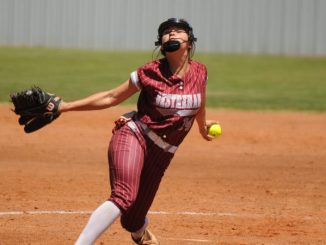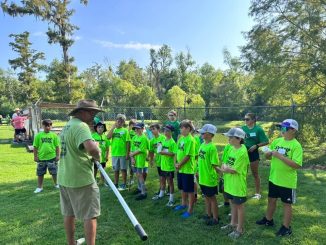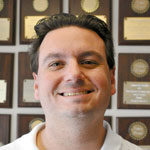
Loss of family members part of his drive to find answers
Des Allemands native Erik Beadle has always felt an inclination to learn more about science — when he was only a kindergartner, he told his parents he wanted to become a paleontologist one day, citing Jurassic Park as an inspiration at the time.
While he continued to foster that scientific interest, his path veered from his early ambition into biological study and research — and to Vanderbilt University, where he is hard at work as a Ph.D. candidate, with ambition to one day become an academic faculty at a research institution or to find a career in scientific advocacy.
“I’ve always just been inclined to those professions,” said Beadle, 26, beginning his third year at Vanderbilt where he’s majoring in biology with a specific focus on cancer research. “I’m a detail-oriented person and I kind of view the molecular machinery of a cell like a puzzle … I like to figure out how all the pieces fit together and how a cell becomes cancerous.”
Beadle’s will to accomplish his goals come not just from his natural interest in the subject. He lost both his grandmother and father to non-alcoholic liver disease and liver cancer, and the hope he could one day contribute to a breakthrough or even a cure is a large part of what drives him, and that drive pushed the Hahnville High School alumnus to advance his studies for the past eight years, the first six of which were spent in Ruston at Louisiana Tech.
Initially, Beadle majored in biomedical engineering at Tech, but during his sophomore year he found researching genetics and cell structure truly resonated with him, after going through classes and lab work and changed his major to biology.
“Not that I wasn’t good at math, but I didn’t particularly enjoy the types of research (biomedical engineers) do,” Beadle said. “I just found the biological questions more interesting … it’s really been that way all my life.”
He did field work at Ochsner’s Kenner ICU to determine if he would pursue medical school or graduate school, ultimately, opting for the latter.
“I felt I had a more defined skill set that would allow me to have more success in graduate school,” said Beadle, who joined the lab of Dr. Jamie Newman at Tech during his senior year, where he did research on adult stem cells for the remainder of his time as an undergraduate.
He also said his field work experience was a key reason behind his decision to turn his attention to a research-driven path.
“I admit that was difficult,” Beadle said. “Going in several days a week, you’ll see a patient’s health deteriorate at times … it’s an emotional experience. I always strongly encourage students to do (field work) at an emergency room or an ICU so they can figure out if that’s right for them.”
Once he reached Vanderbilt, he officially transitioned to major in cancer biology.
He recently achieved a major milestone within his Ph.D. program, passing a major qualifying exam that involved Beadle giving a presentation on his findings and being questioned on it by a five-person exam board for approximately two hours.
It was also effectively make-or-break.
“They use this to determine if you’re actually an official candidate for a degree,” Beadle said. “Once you pass this, you’re really focusing on your dissertation work and your research from there.”
He said that generally, similar presentations might not faze him—at Hahnville High, he was part of the talented drama program, so speaking in front of an audience to tell a story doesn’t intimidate him in and of itself.
That said …
“When you go in and you know so much is riding on the line, as was the case this time, it can heighten your anxiety a bit,” Beadle said.
He added he’s learned the value of remaining flexible during his presentations.
“When those questions are being fired back at you, you never want to sound too definitive,” Beadle noted. “Your findings might suggest this is true, but there’s always a possible alternative or exception to a rule. A fish lives in water and needs water, but there are still the fish that climb up on the beach, for example.”
If all continues to go well for the accomplished scholar, he projects to potentially graduate in 2021. He hopes to one day lead his own research group at a high-level institution – and in a perfect world, that institution would have a medical unit attached to it, something he’s seen the value of first-hand at Vanderbilt.
“When you know you’re on a campus with billions of dollars in equipment and so many bright minds, people who are willing to collaborate with you … that allows you to have a bigger dream in mind for your project and your research,” Beadle said. “You feel emboldened to take it the extra mile and really convey a powerful story.”





Be the first to comment